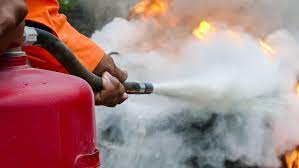Fire safety can seem like a complicated topic, but it’s not. The good news is there are steps you can take to help prevent a fire. The bad news is sometimes people think if they don’t have a fire safety plan, they can’t get hurt. The truth is if you’re prepared no matter what, you’re much less likely to get hurt.
Making sure your home is fire safe is about more than just following the laws, it’s about preparing for the unexpected. That means making sure your home has working smoke detectors, having an escape plan in case of fire, and being prepared to get out of your burning home.
Plan several escape routes
The first thing you should do is make sure you have a good emergency plan. Consider where you are likely to go if there is a fire, and how you will get there, if necessary. If you are stuck, make sure there are at least two escape routes, one of which should lead you out of the building.
Conduct home fire drills
Fire is a constant threat in all types of homes, but it can be especially dangerous for children and pets. Fire departments, insurance companies, and even the federal government all recommend that everyone have a fire prevention plan. A fire prevention plan can help prevent damage to your home and belongings, and it can help you and your family evacuate safely.
Smoke alarm
A smoke alarm can be a lifesaver in a variety of ways. Emergency situations such as a fire, gas leak or natural disaster can leave you with limited time to get out of harm’s way. When the time comes that you need to wake up from a deep sleep to escape from a dangerous situation, a smoke alarm can help you get up and save your life. Cracked windows and doors can also lead to a fire if the smoke alarm isn’t working. Knowing how to replace a smoke alarm is important in the case of a fire evacuation.
Fire extinguisher
When improperly used, fire extinguishers can be dangerous. Fire extinguishers are designed to work with one goal in mind: to put out fires. They do not contain an amount of chemicals that would allow for the extinguishing of all of the agents that constitute the fire. Therefore, if the fire is not fully extinguished, it can still continue to burn.
Remember to unplug
There are a couple of things you can do to keep your house and family protected from a house fire, and one of them is to make sure you unplug your devices when you’re not using them. When going out, take a quick trip into the laundry room to unplug the dryer and disconnect the electric outlet to the range hood that you used to heat food in. Also, be sure to unplug any extension cords that stay plugged in when you’re not using them.
Conclusion
If you’re not busy, you should be doing fire drills at your home every 6 months to make sure your home is ready for an emergency with the help of fire safety training Melbourne. You can also make sure to prepare your home for an emergency by setting up fire extinguishers, smoke detectors, and fire extinguishing products like garden hoses and blankets if you’re planning to do any firefighting. By doing these simple things, you can minimize the damage that fire can cause to your home in the event of a fire.

